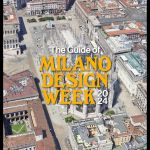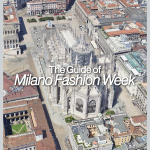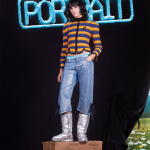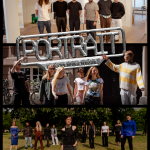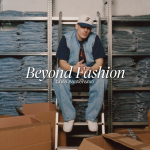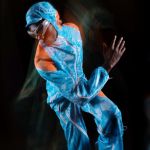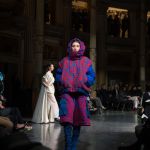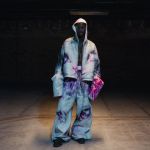
Fashion explores Time but forgets the Future
Virgil Abloh and Alessandro Michele offers different visions of what time means in contemporary culture
January 17th, 2020
A pendulum swaying incessantly on the catwalk and a clock designed to run counter clockwise.
Time - in its highest meaning - was the main theme chosen by Alessandro Michele and Virgil Abloh in the Gucci and Louis Vuitton FW20 men's fashion shows in Milan and Paris.
Possibly one of the widest topics that has filled philosophy books throughout centuries and cultures, is today explored by fashion, at a time when brands and stylists have reached a weight and influence in global pop culture such as to be able to offer a vision on a theme so complex and philosophical.
Michele and Abloh's perspectives on Time have similarities and differences: both read Time as something non-linear - inexorable and dysfunctional - almost like a law that hangs over Man, which however tries to escape from it.
The set of the Gucci fashion show celebrating Michele's 5 years as creative director rotates metaphorically around a huge mechanical pendulum that sways between the models. The catwalk of Palazzo delle Scintille was covered with black sand, as if an enormous hourglass has overturned on the set. Instead, the public was sitting on long wooden benches reminiscent of university desks, the show's notes were presented in the form of a protocol sheet folded in half and the parade was promoted by a video of tbt pictures with the hashtag #ravelikeyouare5.
Michele designs a journey into childhood that becomes an escape from the present Time, a return to the purity of childhood before institutions and society force the human being into rules and uniforms.
“Going back to infancy means going back in time and this is the key to redefine things. Time is something that you can't stop, that's why I'm not nostalgic, but you can learn from everything in the past to be stimulated and inspired for the future." Said Michele to NowFashion following the show.
In Virgil's fashion show, time does not exist, it stops - or goes backwards - relieving humans from the inexorable tyranny of Time, where the rules of the world do not exist. The references to surrealist art are evident and always dear to Virgil: the artistic movement that began in the 1920s was interested in reversing the ordinary, redefining the familiar with a new meaning. Dalì imitates art in life, Virgil's streetwear imitates formal dress.
Future, although a great theme in the vision of contemporary culture: when it is imagined , we cannot help but imagine it as a frightening place, where technology will consume man. The accusation of having stopped imagining the future with enthusiasm and optimism is a shortcoming common to all the arts and sciences. Directors, artists, historians and anthropologists prefer to take refuge in history or fantasy, because as Yuval Noah Harari often emphasizes: the rhythm of the social, political and aesthetic change is so fast and complex that every human prediction is a gamble compared to the data-driven precision of an algorithm.
Abloh and Michele offer human resistance to contemporary society, but at the same time fuel the fear of facing time in its most natural dimension, that of the future, continuing to take refuge in a very human yet childlike refusal.





















